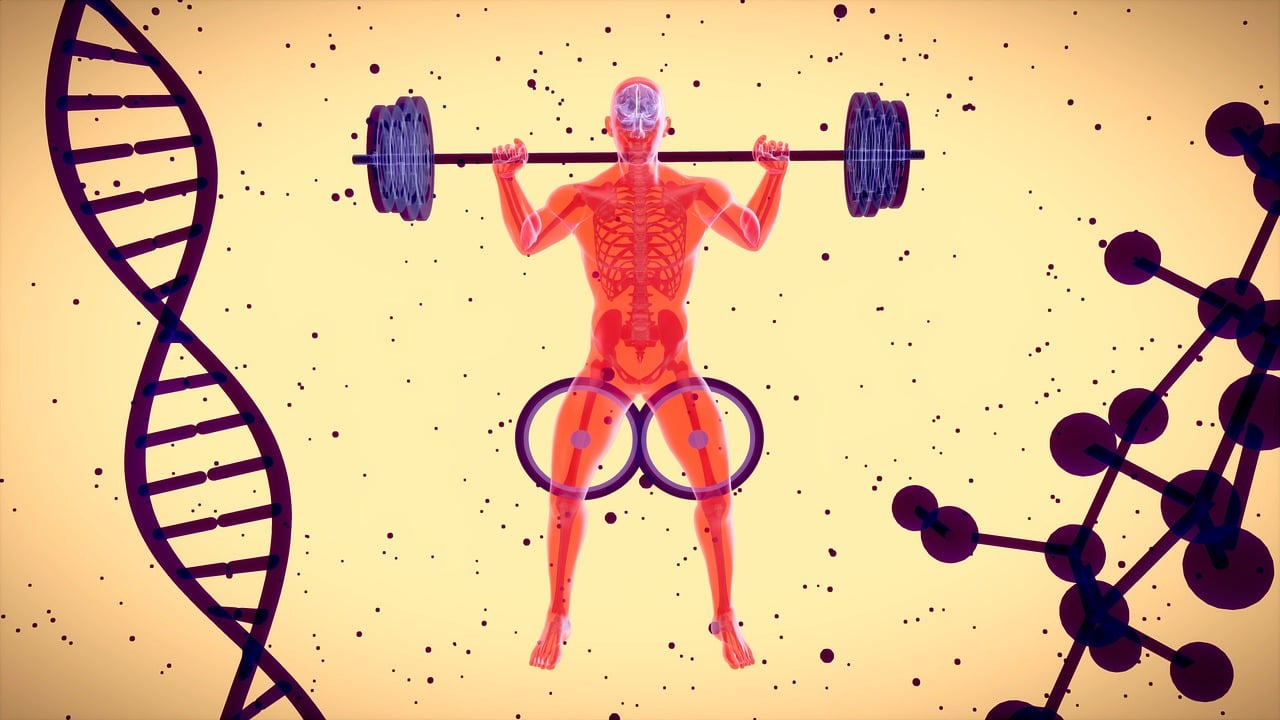Dr. Nir Barzilai is a prominent figure in the study of aging and longevity, known for his innovative research and groundbreaking insights. As the founder of the Einstein Nathan Shock Center and the Glenn Center for Excellence in Biology of Aging, he is dedicated to understanding the genetic factors that enable some individuals to reach 100 years old. This article encompasses essential themes from Dr. Barzilai’s work, including the hallmarks of aging, the potential of Metformin in delaying the aging process, and the importance of lifestyle choices such as diet and exercise.
The discussion highlights key elements of Dr. Barzilai’s personal longevity protocol, emphasizing his daily exercise routine, dietary habits, and the significance of social connections. Additionally, insights into his groundbreaking TAME trial aim to show that aging can be targeted and potentially prevented. By exploring these aspects, valuable lessons emerge regarding healthy aging and the exciting prospects for future research in longevity science.
Understanding Aging and Longevity

Definition of Aging
Aging is a natural process that involves a progressive decline in physiological functions, leading to an increased risk of disease and eventual death. It is commonly characterized by changes in physical appearance, such as wrinkles and gray hair, but aging encompasses much more than just these visible signs. At its core, aging is the cumulative effect of time and biological wear and tear on your body’s cells and systems. It influences everything from your immune response and cellular repair capabilities to your metabolism and cognitive function. Understanding this complex process is essential not only for individuals but for society as a whole as we aim to foster healthier, longer lives.
Distinction between Chronological Age and Biological Age
You may have heard the terms chronological age and biological age used interchangeably, but there’s an important distinction between the two. Chronological age is simply the number of years you’ve been alive, while biological age refers to how well your body is functioning in comparison to your chronological age. This distinction is crucial because two people who are the same chronological age can have significantly different biological ages due to factors such as lifestyle, genetics, and environmental influences. By focusing on biological age, you can adopt strategies that might help slow down the aging process and promote better health outcomes.
Importance of Studying Aging for Public Health
Studying aging is vital for public health considerations, particularly as populations around the world are living longer than ever before. With an aging global population, a greater understanding of how to promote health, prevent age-related diseases, and boost the quality of life for older individuals becomes increasingly important. By researching aging, public health officials can formulate policies and create programs that support healthy aging and mitigate the impact of chronic health conditions. This focus not only enhances individual well-being but can ultimately reduce healthcare costs and improve societal productivity.
Dr. Nir Barzilai: A Pioneer in Geroscience
Biographical Background of Dr. Barzilai
Dr. Nir Barzilai is recognized as a leading figure in geroscience, the study of the relationship between aging and age-related diseases. He serves as a distinguished professor of medicine and genetics at the Albert Einstein College of Medicine. His long-standing interest in the biology of aging was piqued by personal experiences, particularly observing the health decline of family members, including his grandfather. These observations fueled his passion for uncovering the biological mechanisms of aging and improving the quality of life for older adults.
Founder Roles and Significant Contributions
You may find it inspiring that Dr. Barzilai is the founder of the Einstein Nathan Shock Center and the Glenn Center for Excellence in Biology of Aging. Both institutions focus on developing innovative strategies to tackle the biological underpinnings of aging. Dr. Barzilai has significantly contributed to the field by advocating for research on centenarians, utilizing their unique biological attributes to uncover genetic factors that protect against aging. His work is paving the way for new therapies that could transform our approach to aging and longevity.
Overview of Research Focuses
Dr. Barzilai’s research efforts are primarily directed at exploring the genetic and biological aspects of aging. He investigates the reasons why certain individuals live to be centenarians and aims to identify specific genetic markers that offer protective benefits against degenerative diseases associated with aging. His work delves into understanding the hallmarks of aging, which could lead to breakthroughs in how we approach age-related health issues. His findings underscore the potential for developing interventions that can delay aging and enhance longevity.
Research on Centenarians
Studying the Genetics of Long-Lived Families
A notable avenue in Dr. Barzilai’s research involves studying the genetics of families with a history of longevity. By examining these long-lived families, he seeks to pinpoint genetic variations that contribute to extended lifespans and better health in later years. This research shines a light on the potential to customize longevity protocols based on genetic predispositions. If you find this intriguing, you might consider tracking your own family’s longevity traits and investigating whether there are patterns to observe.
Identifying Protective Genetic Factors Against Aging
One of the exciting aspects of Dr. Barzilai’s work is the identification of protective genetic factors that enable some individuals to age more gracefully than others. These factors might include specific genes related to cellular repair mechanisms, inflammation reduction, or metabolism. Understanding these genetic protectors not only adds depth to our knowledge of aging but also empowers you to make informed lifestyle choices that could promote your longevity.

Implications for the Science of Longevity
The science of longevity is rapidly evolving, and the implications of Dr. Barzilai’s findings are profound. By understanding the genetic factors at play, researchers can develop targeted therapies that help mitigate the effects of aging and improve healthspan—the period of life spent in good health. This little-recognized aspect of aging could lead to significant advancements in how we treat age-related diseases, potentially offering you and future generations a chance to enjoy longer, healthier lives.
The TAME Trial
Objectives of the TAME Trial
The Targeting Aging with Metformin (TAME) trial, spearheaded by Dr. Barzilai, aims to investigate whether the diabetes medication Metformin can delay the onset of age-related diseases and ultimately extend lifespan. The trial seeks to establish if Metformin can positively influence healthspan by targeting the biological mechanisms of aging, rather than merely treating individual diseases associated with aging. If successful, this could pave the way for new approaches in gerotherapy, offering you and others a viable option to promote longevity.
Methodology and Participant Details
In the TAME trial, researchers will enroll a diverse group of older adults, many of whom show early signs of age-related diseases. Participants will be monitored for various health markers over several years, providing invaluable insights into how Metformin influences aging processes. It’s fascinating to see how this clinical research seeks to unravel the complexities of aging and offers a chance for individuals to contribute to groundbreaking science.
Expected Outcomes and Potential Impact
The expected outcomes of the TAME trial are not just about extending lifespan but also enhancing healthspan. If Metformin proves effective, it could lead to a paradigm shift in how we think about aging and disease prevention. This research has the potential to improve health outcomes for millions of older adults, making it a vital undertaking for both science and society. Imagine a future where aging does not equate to declining health but instead is a period of vitality and well-being.
Hallmarks of Aging

Overview of Aging Mechanisms
Aging is characterized by several underlying mechanisms known as the hallmarks of aging. These include genomic instability, telomere attrition, epigenetic alterations, and loss of proteostasis, among others. Understanding these mechanisms helps scientists like Dr. Barzilai identify targets for intervention. By familiarizing yourself with these hallmarks, you may feel more empowered to take steps to mitigate their effects through lifestyle choices.
Interconnected Nature of Age-Related Changes
It’s essential to recognize that the hallmarks of aging are not isolated events but interconnected processes that influence each other. For instance, genomic instability can lead to inflammation, which may, in turn, cause metabolic dysfunction. This interconnectedness illustrates the complexity of aging and highlights the importance of a holistic approach when considering strategies for promoting longevity and vitality as you age.
Recent Developments in Understanding Hallmarks
Research into the hallmarks of aging is continuously advancing, with scientists uncovering new insights into how these processes function. Recent studies have elucidated the roles of autophagy (the body’s way of cleaning out damaged cells) and inflammation in the aging process. By staying informed about these developments, you can better understand the emerging trends in longevity research and how they might influence your health in the future.
Economic Benefits of Longevity
Impact on Workforce and Retirement Systems
As life expectancy continues to increase, the implications for workforce productivity and retirement systems become increasingly significant. A healthier aging population may contribute positively to the economy, as older adults remain active in the workforce for longer and contribute their knowledge and experience. You can appreciate that fostering healthy aging has the potential to lessen the burden on social security and pension systems and create a more sustainable economy.

Healthcare Savings Through Preventive Aging Research
Investing in preventive aging research could lead to substantial healthcare savings by shifting the focus from treating diseases to maintaining health. By understanding and targeting the biological aspects of aging, we might proactively stave off conditions that frequently arise later in life. This shift not only enhances quality of life for individuals but also alleviates financial pressure on the healthcare system, ultimately benefiting society as a whole.
The Role of Longevity in Sustainable Economies
Encouraging longevity can play a significant role in creating sustainable economies. When individuals remain healthier for longer, they can continue to contribute economically, reducing the strain on healthcare services and retirement funds. This potential for increased economic stability emphasizes the importance of investing in research focused on healthy aging practices for long-term societal benefits.
Barzilai’s Personal Longevity Protocol
Daily Exercise and Physical Wellness Routines
Dr. Barzilai prioritizes daily exercise as a cornerstone of his longevity protocol. He emphasizes a balanced fitness routine that includes cardiovascular workouts, resistance training, and flexibility exercises. In his case, activities like cycling on a Peloton and working with a trainer help him stay physically fit. By maintaining an active lifestyle, you, too, can enhance your physical wellness and mitigate some negative aspects of aging.
Dietary Practices: Focusing on Intermittent Fasting and Nutrition
Dr. Barzilai follows dietary strategies that center around intermittent fasting—often fasting for 17-18 hours each day. His eating habits prioritize reduced carbohydrates, increased fish consumption over red meat, and the incorporation of healthy fats, like olive oil. You might find that adopting some of these dietary practices aligns well with your goals for maintaining health and prolonging your lifespan.
Sleep Strategies for Optimal Health
Making sleep a priority is another vital aspect of Dr. Barzilai’s personal longevity protocol. He aims for about seven hours of quality sleep by creating a dark sleeping environment. Quality sleep is crucial for cognitive function and overall health, allowing your body to recover and repair itself. You can explore sleep strategies that work best for you, ensuring that you optimize this essential component of well-being.
The Role of Metformin in Longevity
Mechanisms of Metformin’s Action
Metformin, a drug commonly prescribed for type 2 diabetes, has shown promise in the field of aging research due to its multifaceted effects. It works by improving insulin sensitivity, reducing liver gluconeogenesis (the production of glucose), and modulating the stress response in cells. These mechanisms can have profound implications for the aging process, opening the door to exciting possibilities for longevity.
Current Clinical Trial Results and Future Prospective
Ongoing clinical trials, including the TAME trial, are seeking to clarify Metformin’s role in aging. While initial results are promising, much more research is needed to determine how effectively it can delay age-related diseases in non-diabetic individuals. The future of Metformin in the context of longevity is filled with possibilities that could reshape how we understand and address the aging process.
Potential Effects on Muscle Growth and Overall Health
There has been significant interest in how Metformin might influence muscle growth and overall health as you age. While some studies suggest that it may blunt muscle-building signals, ongoing research aims to elucidate a clearer picture. You can stay informed about emerging research in this area as it may offer valuable insights into maintaining strength and fitness during the aging process.
Other Longevity Factors and Insights
The Importance of HDL Cholesterol
High-density lipoprotein (HDL) cholesterol, often referred to as “good” cholesterol, plays a significant role in heart health and longevity. Elevated levels of HDL are associated with a lower risk of cardiovascular diseases, which are common in older adults. By managing your cholesterol levels through a heart-healthy lifestyle, you can potentially enhance your longevity and improve overall health.
Social Connectivity and Its Relationship with Longevity
Social connections are crucial for maintaining your mental and emotional well-being as you age. Studies have shown that individuals with richer social lives tend to live longer and experience better health outcomes. Make an effort to cultivate and maintain meaningful relationships, as they can contribute significantly to your overall happiness and longevity.
Influence of Psychological Well-Being on Aging
Psychological well-being is another essential component of aging. Positive mental health is closely linked to longevity, as stress, depression, and anxiety can accelerate the aging process. Engaging in activities that promote your psychological health—such as mindfulness, hobbies, and social interactions—can enhance your quality of life and promote healthier aging.
Conclusion
Recap of Key Insights from Dr. Barzilai’s Work
Dr. Nir Barzilai’s research offers a wealth of knowledge about aging and longevity, from the biological mechanisms of aging to practical lifestyle changes you can adopt. His work emphasizes the importance of genetic factors, the potential of Metformin, and the interconnectedness of various aspects of health when it comes to aging gracefully.
The Importance of a Holistic Approach to Aging
Taking a holistic approach to aging involves understanding not just the biological facets but also the lifestyle, psychological, and social dimensions. By integrating all these aspects, you can enhance your healthspan and embrace the positives of aging.
Looking Forward to Advancements in Geroscience
As geroscience continues to evolve, the future looks promising for advancements that can lead to extended lifespan and improved quality of life. By staying informed and engaged, you can take proactive steps toward healthier aging, ultimately shaping a vibrant future for you and future generations. Stem cells have the extraordinary ability to repair and regenerate damaged cells, making them a promising solution for many chronic conditions. However, traditional stem cell therapy is often out of reach due to high costs, the need for donors, or the requirement to travel abroad. Fortunately, a groundbreaking stem cell technology is now available, offering a more affordable and accessible way to experience these benefits.
This technology complements healthy lifestyle habits—like eating well, exercising, and reducing toxins—to enhance the body’s natural healing processes. It accelerates recovery, supports immune function, and combats inflammation by strengthening your cells. To learn how this innovative solution can benefit you, your loved ones, or those facing health challenges, contact us at stemboostx @ gmail.com with the subject “AIWNBOX.”

